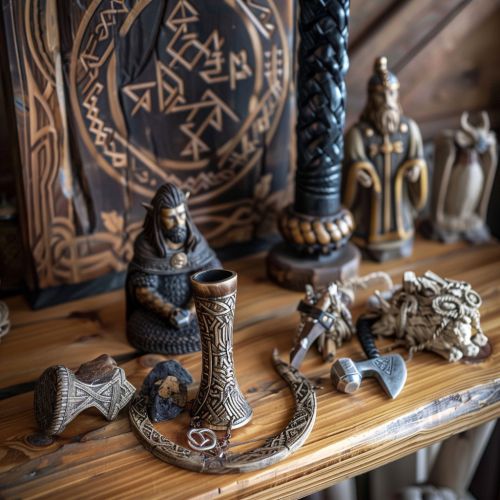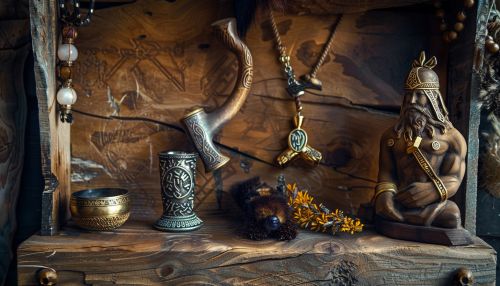Asatru
Origins and History
Asatru, also known as Heathenry, is a modern religious movement that seeks to revive ancient Norse religious practices. The term Asatru directly translates to "faith in the Æsir," the pantheon of Norse deities. The movement originated in the 1970s and has since spread across Europe and North America.
The roots of Asatru can be traced back to the pre-Christian Norse paganism practiced by the Germanic tribes living in the Nordic countries during the Viking Age. With the Christianization of Scandinavia, these old beliefs gradually faded away, but they were never completely forgotten. In the late 19th and early 20th centuries, there was a resurgence of interest in these old Norse myths and legends, which eventually led to the formation of the Asatru movement.


Beliefs and Practices
Asatru is a polytheistic faith, with followers venerating a wide range of deities from the Norse pantheon. The most widely revered gods include Odin, Thor, and Freyr, while goddesses such as Freyja, Frigg, and Skadi are also important figures in the Asatru pantheon.
Asatruar, as followers of Asatru are known, believe in a cosmology that includes the Nine Worlds, which are interconnected by the cosmic tree Yggdrasil. These worlds include Asgard, the home of the gods; Midgard, the world of humans; and Hel, the realm of the dead.
Rituals in Asatru are often community events, with the most common ritual being the blot, a communal meal with offerings made to the gods. Another important ritual is the sumbel, a ceremonial toast made in honor of the gods, ancestors, and heroes.
Asatruar also place a great deal of emphasis on the values of honor, loyalty, generosity, and truth, which are derived from the Hávamál, a collection of Old Norse poems that offer wisdom and advice for living.
Modern Asatru
Today, Asatru is practiced by thousands of people around the world, with numerous organizations and kindreds (congregations) dedicated to the faith. These groups often vary in their interpretation and practice of Asatru, reflecting the decentralized nature of the religion.
In some countries, Asatru has been officially recognized as a religion. In Iceland, for example, the Ásatrúarfélagið has been recognized as a religious organization since 1973, and it conducts legally binding ceremonies such as weddings and funerals.
Despite its growth, Asatru faces challenges and controversies, particularly regarding its relationship with white supremacist and neo-Nazi groups. Many Asatruar strongly reject these associations and emphasize that their faith is open to all, regardless of race or ethnicity.
